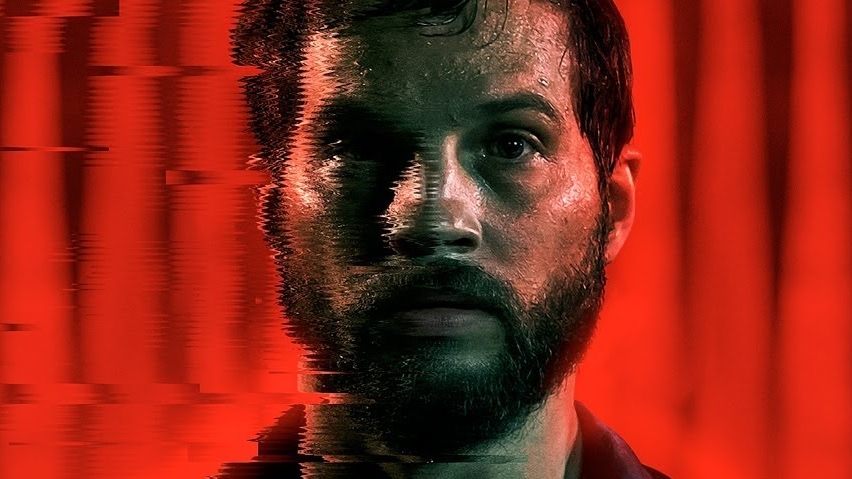'Upgrade' Offers Exciting Style

The studio may be responsible for producing a slew of schlock that ends up exemplifying the worst of the film industry’s desire to make a quick buck as cheaply as possible, but when a studio presses its creators to use their money wisely to emphasize clever filmmaking to churn out gems like “Whiplash,” “The Gift,” and “Get Out,” that should probably be more of an indictment on the company’s talent pool than its perceived thriftiness. Producing one point in that statement’s favor is “Upgrade,” a techno revenge-thriller from Leigh Whannell, screenwriter of the first “Saw” movie, that’s a breath of fresh air amongst a landscape of blockbuster cinema that carries itself with style without sacrificing substance on a miniscule budget.
Courtesy images
Left quadriplegic after an attempt on the lives of him and his wife leaves her dead, mechanic Grey Trace is left immobile and with little to live for until his last client, hearing of his situation, offers to restore his mobility by way of an experimental surgery, implanting an artificial intelligence between his neck and spine. Along with the installation of the AI known as Stem, Grey ostensibly gains a personal assistant within his own head, able to identify details of his wife’s murder that the cops were unable to. Emboldened by this information, Grey sets out to avenge his wife with Stem’s assistance, trusting more and more of his free will to the machine to carry out the kills.
The savvy viewer may see the ethical issues developing within the story from a mile away, but the most striking thing about “Upgrade” is just how relatable it is. The future that the film is set in is heavily based on technology that isn’t mainstream but very accessible today. Striking a balance between making the polish of said technology feel attainable and dialogue presenting very lived-in and three-dimensional characters, Whannell manages to craft a rare breed of future in film that actually feels over the horizon within the next 30 years or so. Adding to that atmosphere is the fine line walked between style and realism. While all of the characters may seem like types at first, the actors are given a lot of room to really cut loose.
It would have been easy for Grey to come off as one note before his accident and wholly unlikeable after setting off to do his mission but Logan Marshall-Green hopefully manages to take his first steps out of the shadow of being “that guy that looks like Tom Hardy.” Grey is a charming, sincere, and hardworking man that is making do with the terrible hand he’s been dealt and the degree to which he is horrifically aware of just how far in over his head he is manages to be perfectly emphasized by his relationship with Stem.
The two serve as a comedic duo of sorts, Stem operating Grey’s body with an almost unnatural robotic looking coordination to protect the life of its host who watches and reacts with utter horror at the effortlessly executed carnage that his body carries out. “Upgrade” is peppered with these moments of dark comedy that keep the wild nature of the story grounded in a level of humanity that feels less like a precautionary tale on the dangers of technology and more refreshingly like a reminder that the only real danger to mankind’s evolution is mankind itself.
It’s not a movie that is devoid of indulging just a little bit too much into its style on occasion, but “Upgrade” manages to keep all of its spectacle and science fiction elements focused squarely on the development of its strongly crafted plot, the only real flaw of which is unfortunately its ending.
While not necessarily bad, and absolutely admirable in its multiple subversions of several clichés that it had appeared to be fully ready to cash in on, the final twist of the movie lacks a lot of the subtle cleverness embedded throughout the rest of the film. I hesitate to call it a cop-out, but it is noticeably more conventional than the rest of the movie, which seemed to be almost unpredictable.
Even with those few narrative hiccups rearing their head however, “Upgrade” is a true testament to what clever filmmaking and smart resource management can accomplish in a day and age where Hollywood doesn’t seem to grasp why $100 million franchise entries released weekly bomb when audiences constantly demand something new and authentic. It should be seen by audiences and wannabe directors alike as living proof that a fun and intelligent blockbuster can be made successfully and on the cheap.
4 out of 5
Graduating from Texas A&M University—Commerce with a bachelor's degree in News and Editorial Journalism, Jordan Wright has lived most of his adult life professionally critiquing films, from major blockbusters to indie dramas, and has no intentions of stopping.








